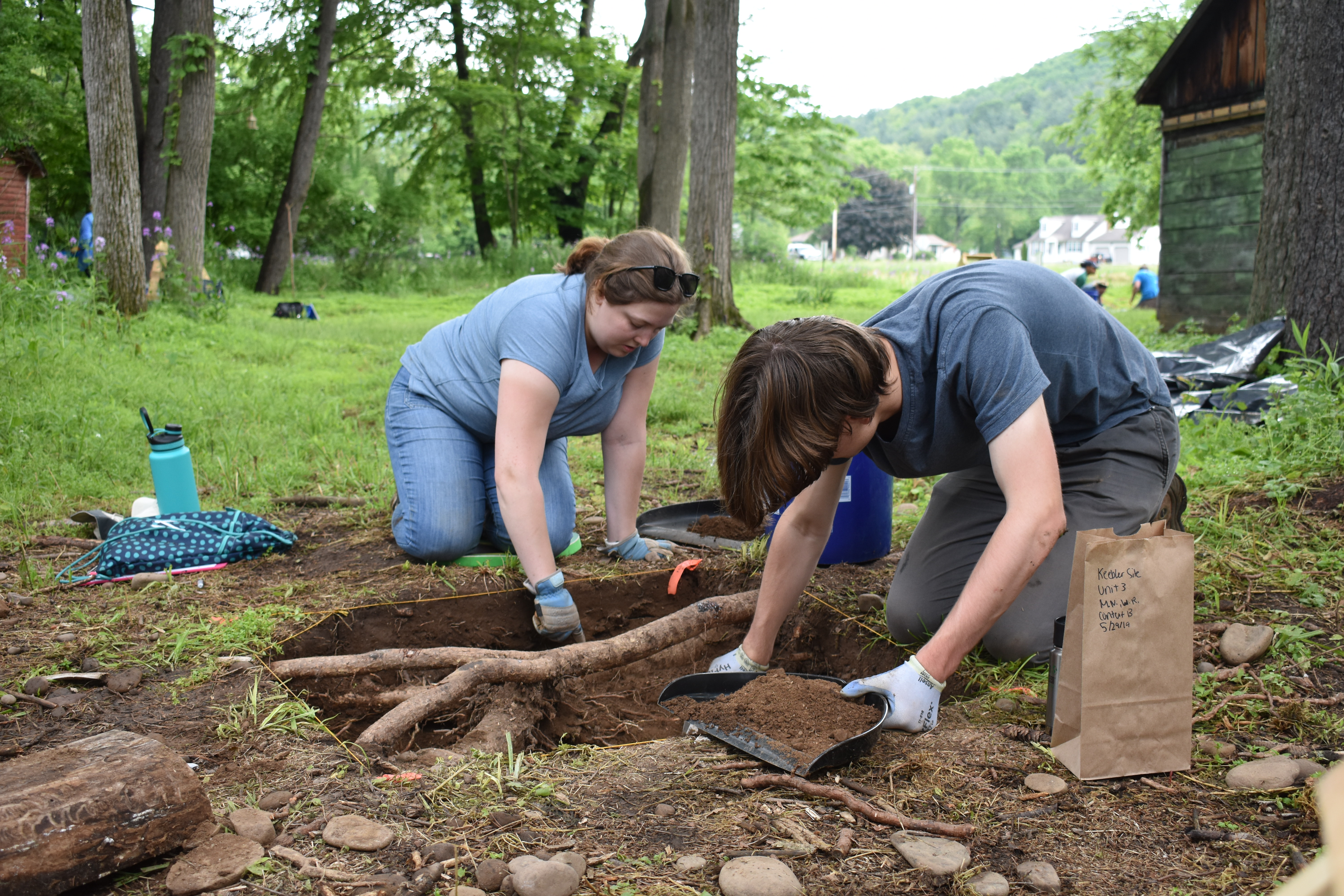
Download Image: Web
This summer, Lycoming College archaeology students found more than just a relaxing vacation. Ten students participated in archaeological fieldwork at the Keebler site, a 19th century historic farmstead on the property of the Lycoming Biology Field Station*. The farmstead was occupied from at least 1832 to the early 2000’s.
The Archaeological Field School, a course developed and taught by Dr. Jonathan Scholnick, an instructor of archaeology, anthropology, and sociology, had two complementary goals. First, the project addresses research questions about 19th- and early 20th-century agriculture and social organization of farms in central Pennsylvania. Second, the project provides an opportunity for students to learn how archaeology is practiced by participating in archaeological excavation and survey.
Students began the five-week course by conducting a survey to locate any previously unknown archaeological sites that might surround the 19th-century dwelling. While in the field, students learned how to locate, record, and excavate archaeological sites, and this hands-on practice helped them build their skills and analytical methods.
“I have seen my students gain proficiency in a range of skills so that they can be valuable members of any academic or professional archaeological team,” said Scholnick. “Although the data collection skills are important, I have also seen my students develop close bonds that help them persevere through challenging conditions and circumstances together.”
Scholnick noted that while most people don’t envision a 19th-century farmstead as a site that archaeologists would be interested in excavating, the historical documents and material culture complement one another.
Throughout the course, they discovered and excavated an outbuilding that was not previously known, as well as made discoveries in the privies associated with the original 19th-century house. Students also dug into the historic documents associated with the families that lived at the Keebler site, tracing the genealogy of the Keebler family who owned the site before the field station. Documents such as the agricultural censuses also connect the agricultural activities practiced through time. Farming at the site was not focused on one or two crops like many modern farms. It was more common for small farms in central Pennsylvania to produce a wide range of crops including corn, wheat, buckwheat, and potatoes, as well as animals including sheep, pigs, and cows.
Artifacts found on the site provide clues about daily life in the 19th and 20th century. Many of the artifacts that archaeologists find represent household refuse that is discarded and forgotten, but the glass jars and bottles found in the privy, locally-made pottery and imported ceramics, animal bones, and even a plow blade from a horse drawn plow tell us about life in rural Pennsylvania. Many historic artifacts help date activities on the site and tell us about how the inhabitants were participating in the economy, purchasing durable consumer goods that can signal social status.
“The field school has exceeded my expectations in terms of answering research questions about farming in the 19th- and 20th-century, but more importantly, my students have learned many facets of archaeological excavation, including surveying and mapping excavations, descriptions of the sediments, artifact identification, and careful excavation,” said Scholnick.
To see more photos and updates from the field, follow @lyco_arch_club on Instagram.
To support academics at Lycoming College, please visit www.lycoming.edu/advancement/give-now.aspx to make a gift to the Lycoming Fund.
*The Lycoming Biology Field Station Inc. is a nonprofit corporation and wholly-owned subsidiary of Lycoming College.